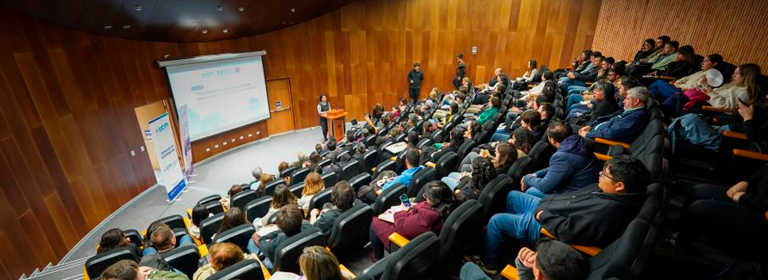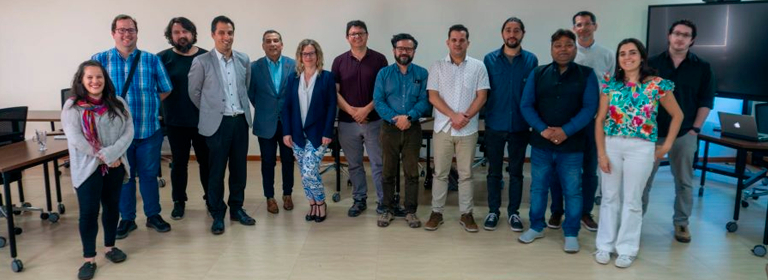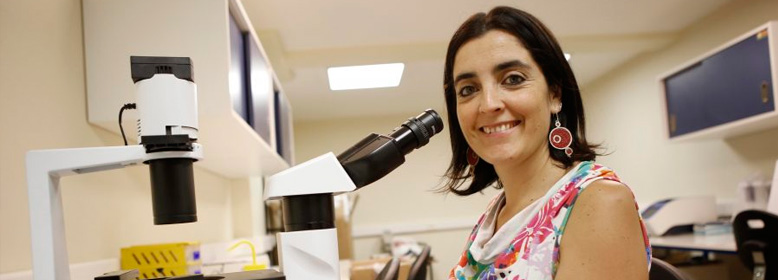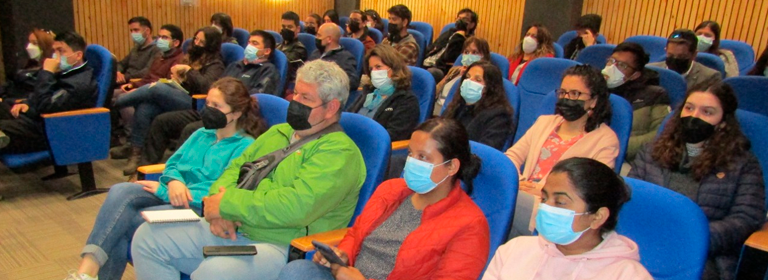The new center will have as its mission to monitor the reality of women, under the name of the first female computer programmer in history, Ada Byron.
 In front of a room full of academics and students, the Universidad Católica del Maule inaugurated a project that will address gender inequality in the fields of research and innovation, with the aim of proposing good practices. The initiative, financed by the National Agency for Development and Research (ANID), will install an observatory that will characterize the reality of women, both inside and outside the campus.
In front of a room full of academics and students, the Universidad Católica del Maule inaugurated a project that will address gender inequality in the fields of research and innovation, with the aim of proposing good practices. The initiative, financed by the National Agency for Development and Research (ANID), will install an observatory that will characterize the reality of women, both inside and outside the campus.
“The observatory will serve as a guiding light for our internal work, but will also provide inputs regarding the regional reality. We hope that the space will have national relevance”, highlighted the project director, Mary Carmen Jarur, during the launch of the initiative that the institution was awarded at the end of 2024, in the InES Gender call.
“We have a six-month journey and the diagnosis that we are developing, already shows us that qualitative studies are necessary. The expectation is quite high, because we will have an intersectional look,” said Jarur.
 The ceremony, headed by the rector Claudio Rojas, was attended by the director of Gender Equity and Diversity of the UCM, María Paula Poblete; and members of the Assembly of the Mane of Rari and Panimávida, whose art inspired the graphic identity of the project, represented by a butterfly.
The ceremony, headed by the rector Claudio Rojas, was attended by the director of Gender Equity and Diversity of the UCM, María Paula Poblete; and members of the Assembly of the Mane of Rari and Panimávida, whose art inspired the graphic identity of the project, represented by a butterfly.
“In Maule, around 5% of those who enroll in science, technology, mathematics and engineering careers are women, while in the country the figure is 22.9%. Thus, there is a gap not only between men and women, but also at the regional and territorial level. That is why these activities are important, to encourage girls to enter these areas and reduce inequality”, said the Seremi of Women and Gender Equity, Claudia Morales.
“Ambivalent sexism”
The theoretical framework of the seminar was provided by the academic from the University of Valparaiso, Andrea Vera, who pointed to the so-called “ambivalent sexism”, as one of the factors that perpetuates gender discrimination, the sexual division of labor and wage disparity within the academy. “In the theory of ambivalent sexism, it is argued that sexism is embodied not necessarily in frontal ways, but sometimes in more subtle ways that swing between a pendulum of benevolence and hostility, like these things that you don’t know if they are a compliment or an insult,” she explained.
 Vera, whose talk was entitled “Gender, sciences and interdiscipline: Towards a transformative research”, shared the results of her Anillos and Fondecyt projects. “(Those findings) are related to forms of sexism, such as paternalism and infantilization (…), where people who are ‘good’ at caring, who are always women, have less valued work, while other people who are perhaps not seen as being as good at caring, have the most valued work such as research,” she emphasized.
Vera, whose talk was entitled “Gender, sciences and interdiscipline: Towards a transformative research”, shared the results of her Anillos and Fondecyt projects. “(Those findings) are related to forms of sexism, such as paternalism and infantilization (…), where people who are ‘good’ at caring, who are always women, have less valued work, while other people who are perhaps not seen as being as good at caring, have the most valued work such as research,” she emphasized.
The observatory will be named ADA, in honor of British mathematician Ada Byron, the first female programmer in the history of computers.













